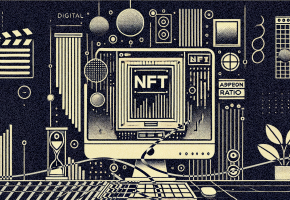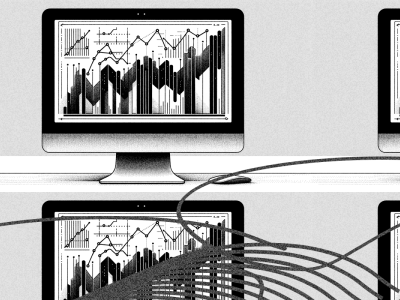Although it is referred to as a contract because of its working principles, a smart contract is actually a program stored on a blockchain system. In other words, it is a code-based contract. It executes some actions when the required conditions are met. Different from traditional contracts, there is no need for intermediaries in smart contracts. Instead, smart contracts rely on code to manage agreements between parties without a problem. In this way, there will be no need for a central authority like the government, or even banks. That’s why DeFi and smart contracts are on the rise.
Let’s make it more clear with an example. If there are two parties who agree to exchange cryptocurrency for a digital asset, the smart contract makes sure the conditions of this transaction are met. If one party completes the requirement but one party fails to fulfill the requirements, the contract autonomously halts the transaction, and no one loses any value.
As you can see above, smart contracts are the most crucial element of Decentralized Finance. Thanks to smart contracts, decentralized applications operate smoothly on networks like Ethereum, Hedera Binance Smart Chain, etc. Smart contracts help individuals and businesses by facilitating peer-to-peer transactions.
Smart Contracts in DeFi: Key Features and Use

Since the beginning of the first economic activities of humankind, finance, and the economy always developed and changed. Smart contacts and Decentralized finance (DeFi) are the latest and most influential developments of our age. The most important aspects of DeFi are increased accessibility, decreased decentralization, and faster financial transactions. There are several elements in decentralized finance, and smart contracts perhaps is the most important one. In this guide, we will explore the role of smart contracts in Defi with you in detail. It seems a bit complicated at first, but understanding what a smart contract is will be much easier for you after reading our article.
This guide will help you to explore the key features of smart contracts, examine the use cases, and highlight how entrepreneurs and startups can get the most out of smart contracts through powerful tools.
What Are Smart Contracts?
Key Components of Smart Contracts in DeFi
Smart contracts are key components of DeFi, but there are also key components of smart contracts. In this section, we will inform you about the core features of smart contacts.
Automation and Execution
Smart contracts execute tasks automatically. In this way, they remove the need for manual monitoring. For example, when a borrower repays a loan using a DeFi platform, the smart contract makes sure the collateral is released without any need for intervention by a third party.
This automation reduces human error in the process and ensures consistent execution of the agreement.
Enhanced Transparency and Trust
Another benefit of smart contracts is transparency and trust. Because smart contracts work on the blockchain system, they create an immutable ledger that everyone can verify. Thanks to the transparency of the blockchain platform, both parties won’t need intermediaries. The trust between parties increases.
Tamper-Resistance
Smart contracts are built on blockchain technology. As you may already know, blockchain technology is highly resistant to tampering and fraud. When it is deployed, the code cannot be changed. That provides a secure framework to manage financial transactions. In other words, a smart chain reduces the risks associated with fraud or hacking.
Cost-Efficiency
Smart contracts remove intermediaries in financial processes such as banks or brokers. Since there are no intermediaries, the transaction cost is lowered significantly. Both large enterprises and startups can save high amounts of money. It is also beneficial for individuals, especially those who live in regions where banking infrastructure is limited.
Flexibility and Programmability
As we said at the beginning of our guide, smart contracts are highly programmable. Developers can design sophisticated financial instruments for specific needs. Things you can do with smart contracts vary from simple peer-to-peer payments to complex trading algorithms. They support a vast range of use cases. Businesses can offer and even innovate customized solutions with smart contracts.
Global Access
Smart contracts work on decentralized networks. That means smart contracts allow their users to participate in any transaction from anywhere in the world. The only thing users need is internet connection.
Summary
In short, smart contracts are a fast, reliable, and secure way of financial transactions. In the table below, you can see a summary of the features & benefits of smart contracts.
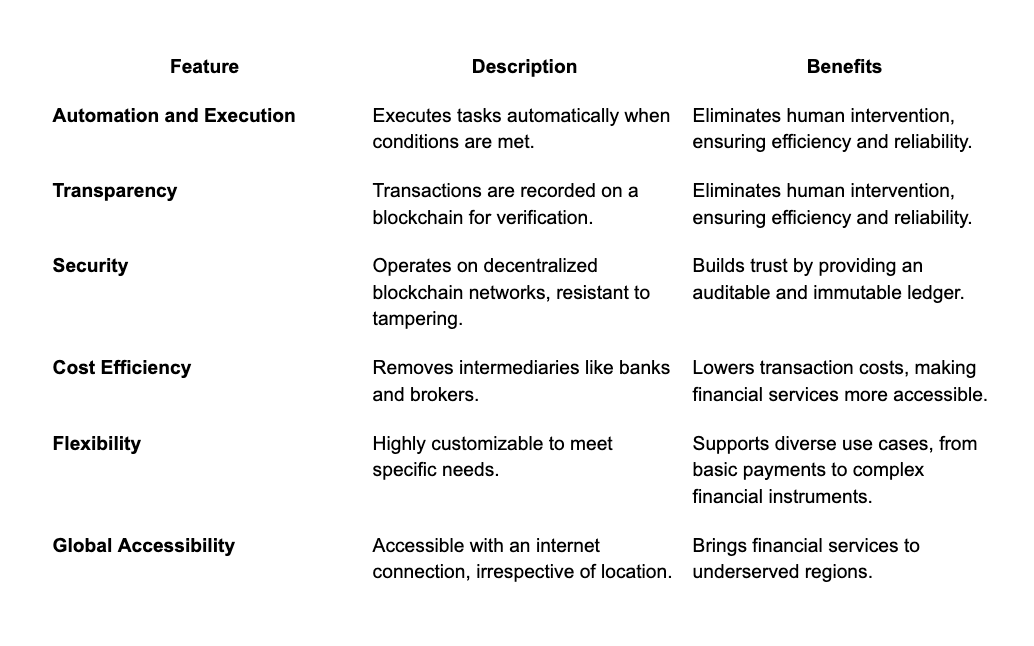
Use Cases of Smart Contracts in DeFi
Smart contracts are versatile financial solutions. They offer solutions across a wide range of DeFi applications. In this section, we will explore the most prominent use cases.
Decentralized Exchanges
Decentralization can be the most prominent benefit of smart contracts. With a decentralized system, users can trade cryptocurrencies directly with one another without needing any bank or other financial institution. Smart contracts automate the whole trade execution and liquidity provision process.
Lending and Borrowing Protocols
DeFi platforms use smart contracts to facilitate lending and borrowing. Borrowers need to lock collateral into smart contracts to access funds, and lenders can interest automatically in this process. Smart contracts are able to adjust interest rates based on supply and demand.
Yield Farming and Liquidity Mining
Yield farming involves providing liquidity to DeFi platforms in return for rewards. Smart contracts manage the distribution of rewards by calculating and executing payouts.
Stable Coins
Stablecoins rely on smart contracts to maintain their value. Collateralized by digital assets, smart contracts dynamically adjust reserves, and tokens stay at a stable value. Thus, smart contracts play a crucial role in stablecoins.
Insurance
DeFi insurance platforms also rely on smart contracts to provide coverage against dangers like hacks or vulnerabilities. Smart contracts verify claims and release payouts only when predefined conditions are fulfilled.
Asset Tokenization
With smart contracts, it is possible to create tokenized assets. Tokenized assets represent real-world properties such as commodities, real estate, or art. These tokens can be traded on blockchain platforms thanks to smart contracts.
Gaming and NFTs
There are many cases where smart contracts play an important role, and most of them are not easy to understand for people who do not have any experience in the field of cryptocurrency or blockchain. However, gaming and NFTs can be the ones that are familiar to most people. NFTs (Non-Fungible Tokens) represent digital art or collectibles issued and traded using smart contracts. It is the same for in-game assets, ownership, and transactions.
The Role of Smart Contracts in Blockchain Security
Security is a top priority for any financial application whether it is traditional finance or decentralized finance. Smart contracts excel in this area by using the decentralized nature of blockchains. Key features of the security include;
- Immutability. Once it is deployed, the code of the smart contract cannot be changed. Thanks to this principle, agreements remain consistent throughout the process.
- Decentralization. Smart contracts work on decentralized networks. This reduces the risk of single points of failure.
- Cryptographic Protection. With advanced cryptographic algorithms, blockchain transactions are secured. The user funds and data are secure.
However, you should keep in mind that poorly written smart contracts can lead to vulnerabilities. To prevent smart contracts from bugs or hacking attacks, entrepreneurs should hire developers who know what they are doing, and developers should conduct tests frequently to ensure everything is secure.
Elevate your business with decentralized finance development services from our expert team of DeFi developers.
We provide end-to-end solutions, from concept to launch.
Why Smart Contracts Are Essential for Startups and Entrepreneurs
Smart contracts are a must for startups and entrepreneurs especially if they are in cryptocurrency or blockchain sectors. Smart contracts offer several advantages that can accelerate growth and innovation. Below, you can find the biggest advantages of smart contracts for startups and entrepreneurs.
- Cost-effective development. Smart contracts are the most cost-effective financial solution for entrepreneurs and startups since they reduce operational costs and enable leaner business models.
- Scalable Solutions. DeFi platforms using smart contracts can easily scale to accommodate growing user bases and transaction volumes.
- Faster Time to Market. Developers can deploy smart contracts and accelerate product launches with smart contracts thanks to pre-built libraries in tools.
- Attracting Users and Investors. As we have explained so far, smart contracts are completely transparent and secure. Thus, it builds confidence among users and investors.
- New Revenue Stream. Startups can create brand new financial products such as tokenized assets or staking mechanisms. By doing that, start-ups can generate more revenue.
Future Trends in DeFi Smart Contracts
As you can understand from our guide so far, smart contracts are on the rise, and they are already powerful financial solutions today. However, their future is even brighter than today. It looks like smart contracts will play a crucial role in the future. Several trends will shape the next developments in DeFi smart contracts. Now, we will explore the future trends.
Privacy Technologies
Privacy is the most important concern for users in the DeFi field. Platforms have been working to provide users with better privacy for years, and advanced privacy technologies will empower smart contracts in the future. Zero-knowledge can be the most advanced privacy solution for smart contracts in the future. ZKPs enable users to verify transactions with almost zero information as the name suggests. For example, users would not need to share the amount or the parties involved with other parties.
Cross-Chain Solutions
One of the most common problems with many DeFi protocols is that they are confined to specific blockchains. This restricts the flexibility of users and also limits the potential of DeFi applications. Cross-chain solutions can be a solid solution to these limitations. Cross-chain solutions allow transfer across different networks such as Ethereum, Binance, and SmartChain.
AI and Machine Learning
AI shapes almost all industries in our lives today, and it won’t be different for De-Fi and smart contracts in the future. The biggest advantage of artificial intelligence is that it can analyze big data in a very short amount of time. This is especially beneficial for entrepreneurs and individuals who invest in cryptocurrencies since AI can determine profitable opportunities in a short time. Machine learning will be also a crucial player in the De-Fi field in the future by minimizing potential risks for investors.
Security
As you already know, smart contracts are important elements of decentralized financial activities and security is a critical element of any financial activity. Since financial activities in De-Fi take place in the online environment, there is always a risk of hacking, fraud, or a bug. Technology will be more advanced in the future, and the vulnerability will be less than today. Smart contract providers and developers have been constantly working on advanced security solutions, and smart contracts will be more and more secure as time passes.
Conclusion: Unlocking Opportunities with Smart Contracts in DeFi
Smart contracts mean innovation for startups, investors, and entrepreneurs since they enable the creation of transformative financial solutions. You will not need to deal with traditional financial systems. All of the activities will be completed in a fast, secure, easy, and transparent way. Businesses that want to follow the latest trends should position themselves at the forefront of the blockchain revolution, and get the most out of smart contracts.
Be prepared to bring vision to your financial activities. Explore the advantages of smart contracts, and take the first step toward building the future!
More interesting articles

GameFi Trends for 2025: How P2E, M2E, and T2E Models Are Evolving
MetaLamp editorial team

Anchor Framework on Solana: What It Is and How It Works
MetaLamp editorial team


How Smart Contracts Work on Solana: Full Breakdown and Usage Tips
MetaLamp editorial team

Solana: What Is This Blockchain and Why Did It Become Popular?
MetaLamp editorial team
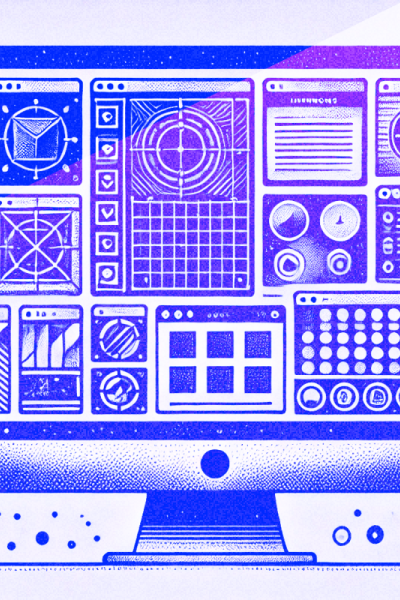
Web3 App: What It Is and How to Create Your Own Application
MetaLamp editorial team

Why are dApps gradually replacing traditional applications?
MetaLamp editorial team

Cross-Chain Smart Contracts: Opportunities and Challenges
MetaLamp editorial team

Smart Contracts in DeFi: Key Features and Use
MetaLamp editorial team

Understanding Token Standards on Ethereum and EVM chains
MetaLamp editorial team
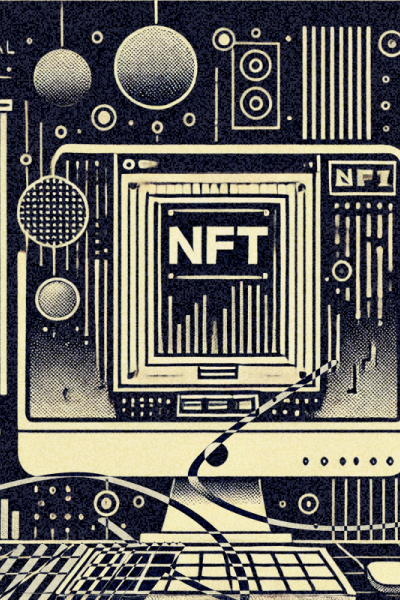
Building NFT Smart Contracts: A Developer's Guide
MetaLamp editorial team


